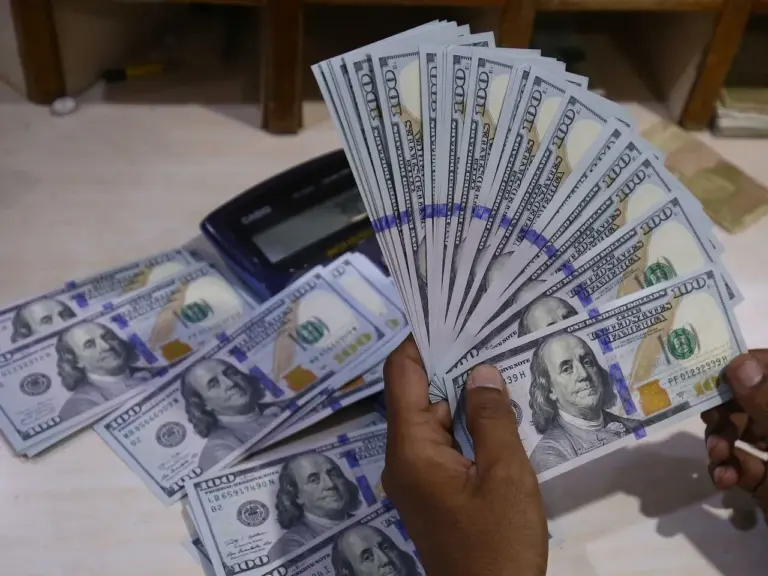Nigeria’s most capitalised non-financial companies are grappling with a steep rise in debt as economic headwinds intensify. In the first quarter of 2025 alone, the collective debt of 12 of the country’s leading firms surged by 30 percent, climbing from N4.8 trillion in Q1 2024 to N6.2 trillion, according to a BusinessDay analysis.
The increase is largely driven by persistent inflation and a significantly weakened naira, forcing companies to borrow more to manage escalating operational costs. This elite group includes prominent names such as BUA Foods, Dangote Cement, MTN Nigeria, Seplat Energy, Geregu Power, BUA Cement, Transcorp Power, Nigerian Breweries, International Breweries, Lafarge Africa, Transcorp Hotels, and Nestle Nigeria.
As of June 5, 2025, their combined market capitalisation stood at N40.8 trillion.
Macroeconomic Pressures Fuel Corporate Borrowing
The growing debt burden reflects deeper macroeconomic instability. The Central Bank of Nigeria (CBN) has kept the Monetary Policy Rate (MPR) at a high 27.5 percent for the second consecutive session, adding to the financial strain. Meanwhile, the naira has depreciated by over 60 percent since its floatation in 2023, trading above N1,500/$ as of May 2025 compared to about N600/$ two years prior.
“This isn’t a result of increased borrowing appetite,” explained Nabila Mohammed, banking analyst at Chapel Hill Denham. “The ballooning debt figures mostly stem from the currency’s depreciation. Many of these loans were originally dollar-denominated, and the devaluation has inflated their naira equivalent dramatically.”
Financial analyst Abimbola Adewale warned that companies exposed to foreign currency loans now face increased repayment risks, as a weaker naira has sharply elevated the cost of servicing debt.
Business Sentiment and Currency Outlook
Despite current pressures, the CBN’s May 2025 Business Expectations Survey shows some optimism. Around 23.9 percent of respondents anticipate an appreciation of the naira over the next six months—a slight dip from 26.3 percent in April. Just 8.2 percent foresee gains in the immediate term.
On June 4, 2025, the naira climbed to a two-month high of N1,565.46/$ at the official FX market, continuing a recent trend of relative stability. The last time it traded near this level was on April 4, 2024.
Businesses also project that interest rates and borrowing costs will decline over the next half-year, offering some potential relief for corporate balance sheets.
Debt Trends of Key Firms
Dangote Cement
Dangote Cement experienced the sharpest debt increase among its peers, with its borrowings rising by 91.5 percent to N2.26 trillion in Q1 2025. This escalation contributed to interest expenses of N110 billion—the highest among the surveyed companies. Despite this, the company reported strong earnings, including a profit after tax of N209 billion and earnings per share of N12.9. The firm’s debt-to-equity ratio reached 55.6 percent, while net profit margins improved from 13.8 to 20.9 percent.
MTN Nigeria
MTN Nigeria’s debt rose by 23.7 percent to N1.14 trillion. However, interest expenses decreased slightly to N44 billion from N48 billion, helped by naira stability. The telecom giant also posted a significant reduction in foreign exchange losses, which dropped to N5.52 billion from a staggering N656 billion. This contributed to a net profit of N133 billion—its first profitable quarter since 2023.
Seplat Energy
Seplat Energy’s debt profile increased by 49.7 percent to N1.08 trillion, leading to an 11 percent rise in interest expenses. However, the firm reported strong quarterly performance, with Q1 2025 revenue rising to N1.228 trillion, up from N268.6 billion year-on-year. Gross profit jumped to N535.4 billion from N63.8 billion. Backed by a solid cash position, Seplat repaid $250 million in advance, reducing its revolving credit facility to $100 million. It also raised its quarterly dividend to US 4.6 cents per share.
Nestle Nigeria
Nestle Nigeria saw its debt climb to N604 billion, although interest expenses declined by 14 percent as the naira stabilised. The company returned to profitability with a profit after tax of N30.2 billion, a significant turnaround from a N142.7 billion loss in Q1 2024. Revenue surged by 61 percent to N294.9 billion, driven by strong demand across product lines such as Maggi, Milo, Golden Morn, and Nescafé.
BUA Cement
BUA Cement reported a 19 percent increase in debt to N494 billion, pushing its debt-to-equity ratio to 105 percent. The firm, a major player in Nigeria’s cement industry, recorded a 351.4 percent year-on-year jump in profit after tax, thanks to improved production efficiency and robust local demand. Revenue rose by 80.5 percent, buoyed by infrastructure expansion and government-supported construction activities.
Despite strong earnings and revenue growth in some sectors, rising debt levels pose growing risks. As Nigeria’s economic landscape remains volatile, corporate resilience will largely depend on currency trends, policy shifts, and firms’ ability to adapt to rising debt service costs.

